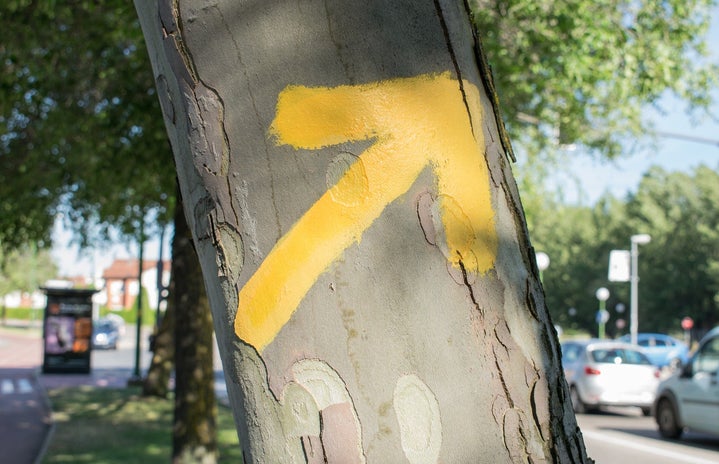The end of your undergraduate education can be an exciting time, but it’s also high-key terrifying. Even if you’ve known exactly what your plans for after graduation are for years, it can bring uneasy feelings due to the uncertainty of what’s to come.
For some, the end of an undergraduate education means the start of a new, full-time job. Others may move back home for a short period of time (or a long period of time—no judgment here). But for many, this life transition means walking across one academic stage right onto the next: graduate school.
Not sure if grad school is for you? Never fear! Read on for three ways to figure out if the next adventure in your life includes a second degree.
1. Check your finances
Whether you graduated six months ago or six years ago, your finances need to be part of your plan. When asked about whether finances played a part in her decision to put off grad school or not, Claire Lechtenberg, a Marketing Coordinator at YWCA Central Carolinas, says that one of her main concerns was the amount of debt she would collect.
“So that’s another reason I’ve taken the employment route,” Claire says. “Not only will I build up writing and marketing experience which are transferable skills to any career, but I’m also saving money.”
There are other options to help with the financial aspect of graduate school if you do need to go right away. Jacqueline Curran, a current graduate student at Queens University of Charlotte, says, “When preparing to apply for graduate school, I researched many ways that I would be able to finance different programs.” Since she took a year off and started working full-time at Queens, Curran was able to use the tuition remission benefit that the university offers to full-time employees.
Talk to the financial and academic advisors at the university to see if there are any teaching or research assistant positions. You may be able to get some grant money from working for the university in that capacity. Fellowships can also be a huge source of financial support for graduate students. Take the time to apply for and potentially land some awesome scholarships to help fund your graduate degree; if you’re lucky, you may even find enough funds to go to grad school for free.
Related: 6 Things You Need To Do The Summer Before Grad School
2. Does your dream career actually need the extra degree?
One of the best things you can do when trying to figure out if graduate school is for you is to make a rough plan of where you want to be five-to-ten years from now. Think about this: If you could be doing absolutely anything as your career, what would it be? Whatever you think of, write it down and do your research.
Bobbie Brinkley, a recent graduate from the University of South Carolina struggled with making the choice to go to grad school or not. “There was a part of me that wanted to go to grad school,” she says. “because with a master’s I could teach some lower level courses at the university I went to.” But Bobbie realized that her main focus was to work in fashion or media and you don’t need a master’s for that. “The biggest reason I didn’t go is because to do what I want to do for a career every day doesn’t require going to grad school,” she adds.
Sometimes we make choices based on what everyone else is doing. It may seem like all of your friends are going to grad school, but they probably aren’t. There are so many options for your post-grad life that you may not even be aware of.
It doesn’t matter if you’re done with universities for the rest of your life or if you’re just taking a short break; look at where you’re at and what you can improve on. You can take a course at a community college to build up your skills in a specific area or attend a professional development conference.
3. Is there another path?
Regardless of if graduate school is in your future or not, there may be more stepping stones for you to get there. It’s totally fine for you to take some time off to learn more about yourself as an employee (and a person) before you take on another degree.
There are benefits to taking time off to work, aside from saving up money for that next vacation of paying your graduate school tuition. In addition to being a graduate student, Curran is also an employee at the Queens University of Charlotte Vandiver Career Center where she is able to mentor current undergraduates during their education. She was hired for this job the summer after her graduation from Queens in 2015.
Curran says that she originally took a year off from school to really figure out what she wanted to do. Having a job right out of college allowed her to learn more about her own work-life balance and helped her figure out what she wanted to do.
You don’t have to make a decision right away (although, you do need to start planning if you’re set on that degree), but while you’re thinking about it you should also be asking yourself: Does graduate school make sense for me? And, keep in mind, just because it’s a popular option doesn’t mean it’s all it’s cracked up to be. All things considered, it may just be best to take a year off. You may find that there’s something out there you love just as much as going back to get that master’s degree.
No matter what you decide is the best next step for you, keep in mind these words of wisdom from Claire: “There’s no one way to live your post-grad life…waiting to figure out what you really want is OK.” Your worth isn’t determined by the number of degrees you have and, as long as you’re passionate about what you’re doing, we think you’re winning at life no matter what.


